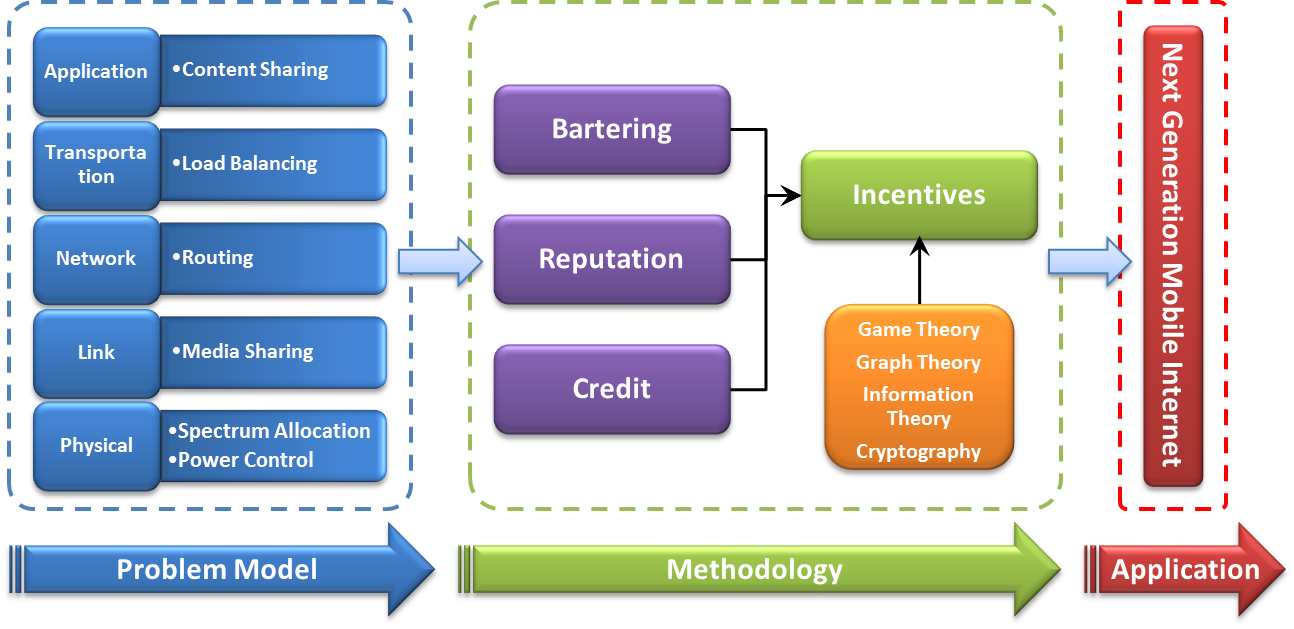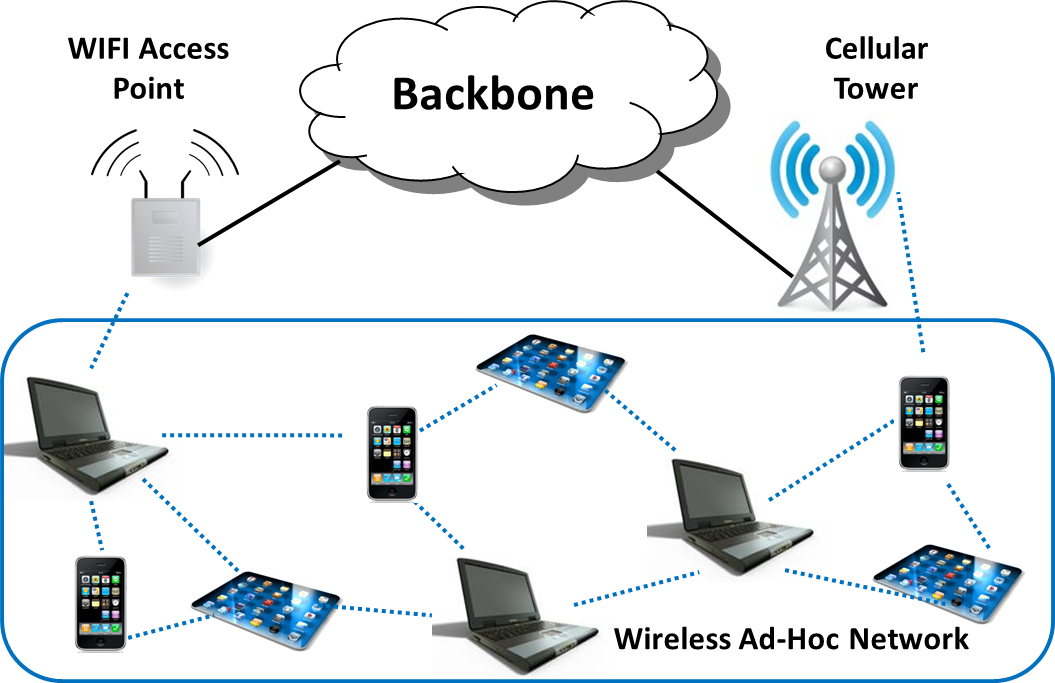 Game Models and Incentive Mechanisms for the Mobile Internet Game Models and Incentive Mechanisms for the Mobile Internet
Principal Investigator, 2013.1~2016.12, NSFC.
The rapid development and wide application of the mobile Internet have greatly changed our lifestyle.
Due to the distributed and user-contributed natures, the mobile Internet, like many distributed autonomous
systems, suffers from common incentive problems caused by usersí selfishness. Such problems can significantly
downgrade the performance of the mobile Internet. However, existing solutions from distributed autonomous
systems cannot be directly used in the mobile Internet, because of the mobile Internetís highly dynamic nature
and intermittent connectivity. In this project, we will study game theoretic models and design novel economic
incentive mechanisms for the mobile Internet, in a bottom-up way following the TCP/IP network architecture.
The research results of this project will provide fundamental theory and technical support for the new generation
of the mobile Internet, and promote the wide application of the mobile Internet in our country.

|
 |
 Economic Incentive Mechanisms for Wireless Ad Hoc Networks Economic Incentive Mechanisms for Wireless Ad Hoc Networks
Principal Investigator, 2012.1~2012.12, NSFC.
With the rapid development of wireless communication technology and the extensive usage of mobile communication
equipment, wireless ad hoc networks are getting more and more attention. Nowadays, wireless ad hoc networks are
not only used in military, but also been applied to civilian application, including home area networks, mobile
communication networks, and so on. Wireless ad hoc networks are envisioned to be one of the most important parts
of future Internet. However, in civilian wireless ad hoc networks, nodes often belong to different parties who
have their own interests and always want to maximize their own benefits. Such selfish behavior can hurt the
robustness and availability of wireless ad hoc networks. In our work, we adopt solution concepts from microeconomics
and game theory to study important incentive problems in wireless ad hoc networks, including spectrum allocation
and routing. Our objective is to achieve a series of cooperation-incentive mechanisms with high availability, low
cost, and high adaptability, through the following four closely related studies: game-theoretic problem modeling,
impossibility analyzing, strong incentive mechanism designing, and systematic evaluation methodology developing.

Wireless ad-hoc networks need incentives mechanisms to enforce cooperation among the selfish nodes.
|
 |
 Theory and Technology of Mega Data Centers on Energy Efficiency and Scalability Theory and Technology of Mega Data Centers on Energy Efficiency and Scalability
Main Participant, 2012.1~2016.12, NSFC.
As the enabling force for cloud computing and the internet of things, data centers are being built around the world,
attracting the increasing attention both from industry and from academia. In this project, we target at the three
fundamental issues such as energy exhaust, network scalability and system cooperation. We study node architecture,
network interconnect, system software and demonstration applications in order to achieve low energy exhaust and high
scalability. In particular, we design a server architecture which is flexible in structure and low in energy exhaust,
propose an incrementally scalable network, establish a whole set of software methodology and resource management model,
and develop multiple application prototypes which can be used to evaluate our proposed theory and methods. After getting
deep insight into theory, methods and applications of data centers, we surely obtain a series of academic achievements,
form our own core technologies, have a place in international standards, and finally contribute to building our own mega
data centers in China.
|
 |
 Other Projects Other Projects
- Collaboration Enforcement in Mobile Wireless Networks (Pu Jiang Scholar), Principal Investigator, 2012~2014, Science and Technology Commission of Shanghai Municipality.
- Shanghai Demonstration English Teaching Course Construction Project: Operating Systems, Principal Investigator, 2012.6~2014.5, Shanghai Municipal Education Commission.
- Incentive-Compatible Spectrum Management (SMC Excellent Young Faculty Class B), Principal Investigator, 2011.12~2013.12, Shanghai Jiao Tong University.
|